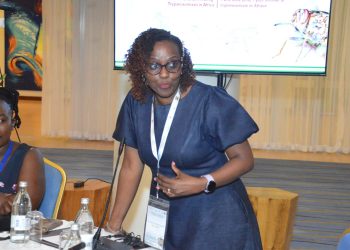By Peter Mbachia
The umbrella body which coordinates cancer organisations in the NGO sector has welcomed the Government’s move to bring in 100 Cuban specialists to work in the country as Kenya embraces Universal Health Coverage (UHC).
Kenya Network of Cancer Organisations (KENCO) Chairman David Makumi has faulted the Kenya Medical Practitioners, Pharmacists and Dentists Union (KMPDU) for opposing the move to bring in the Cuban specialists saying local doctors were unwilling to work in hardship places such as El-Wak.
“There is room for everyone to work in this country just like we have some of our local doctors who have opted to work in other countries in search of greener pasture. As we embrace UHC, there should be no unmet expectations. On UHC, we believe the best way to actualise this key strategy is through the Primary Health Care (PHC)approach,” Mr. Makumi noted.
Speaking to Health Business Magazine in his Kenya Medical Association (KMA) headquarters office in Nairobi, Mr. Makumi urged the Health Ministry to “work overdrive” in supporting the realisation of President Uhuru Kenyatta’s UHC –which is among his “Big Four Agenda” key pillars.
“We are waiting to see how UHC will pan out and how people (especially at the grassroots) will understand what it aims at achieving. The Health Ministry should also involve NGOs on social messaging on UHC since the same could misfire if it is not well packaged,” he said.
Mr. Makumi, who is also the Non- Communicable Disease Alliance of Kenya (NCDAK) Vice-chairman, said by taking the PHC approach, which embraces ‘bottom-up’ approach, UHC will be realised. “We need to sort out public health issues first before tackling the big diseases,” he said. UHC should resonate with wananchi just like the ‘Nyumba Kumi’ initiative and we should therefore ensure we sort out the basics, like ensuring that our childhood vaccination targets are met countrywide,” Mr. Makumi explained.
Mr. Makumi revealed KENCO was planning a National Forum with religious leaders in June to find ways on how religion could be involved in the fight against cancer, a major killer in Kenya. “As UHC unfolds, we are also engaging the National Hospital Insurance Fund (NHIF) as well as MPs on the fight against cancer and other Non- Communicable Diseases (NCDs),” said Makumi.
He supported NHIF for providing cover to those suffering from cancer and other NCDs but urged the fund to also cover the cost of their medication which was out of reach for most of those afflicted. “The NHIF cover is the best thing to happen to those living with NCDs as they are now able to access quality treatment at affordable cost,” he said.
“The move will also minimise medical tourism where patients were spending millions of shillings every year seeking treatment in India and other countries. At the same, there is need to whistle- blow on any hospital which might attempt to make fraudulent claims to NHIF following the introduction of UHC,” Mr. Makumi noted.
In 2014, then Cabinet Secretary for Health, Mr. James Macharia, who is now the Transport Ministry CS, told this writer that Kenyans were spending Sh10 billion annually seeking treatment for cancer, Kidney and cardiovascular diseases in India, Dubai and South Africa.
Mr. Makumi, who said KENCO was the umbrella organisation for more than 25 NGOs involved in the fight against cancer locally lauded the Government for coming up with the National Cancer Control Strategy (2017—2022) saying it was a commendable move.
He said HIV is a risk factor for cancer and there is need therefore to bridge the existing gaps over these chronic diseases. UHC should integrate across all diseases by breaking any barriers among NCDs and communicable diseases by bridging the existing gaps.
S i n c e t h e H I V / A i d s programme in the country enjoys a “good infrastructure,” Mr. Makumi noted, there is need to integrate it with other diseases as we embrace UHC.














